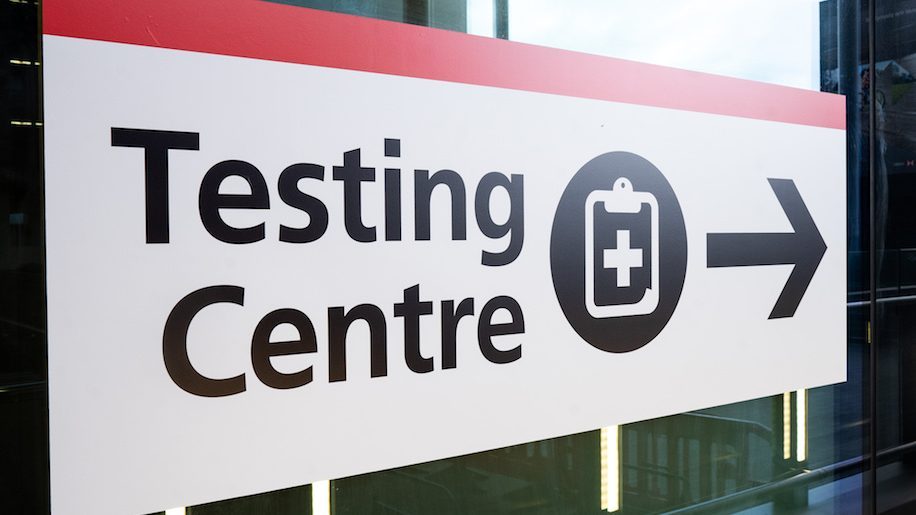
The International Air Transport Association (IATA) has called on governments to reduce the cost of Covid-19 testing so that it is not “out of reach” for travellers.
IATA stated that Covid-19 testing must be “affordable as well as timely, widely available and effective” in order to facilitate “an efficient restart of international travel”.
IATA surveyed the cost of PCR tests in 16 countries and found that the price varied by market, with France the only country to have complied with the World Health Organisation’s (WHO) recommendation for the state to bear the cost of testing for travellers. The European Parliament is also considering the situation, last week calling for testing to be universal, accessible, timely and free-of-charge across the EU.
The cost for PCR testing varied across the other 15 markets from an average minimum of $90 to an average maximum of $208. For example, a PCR test could cost as low as $77 in Australia but $278 in Japan, despite Numbeo data indicating that there is a similar cost of living in Sydney and Tokyo.
The markets covered in the sampling were Australia, Brazil, France, Germany, Indonesia, Japan, Malaysia, New Zealand, Philippines, Singapore, South Korea, Switzerland, Thailand, UK, USA and Vietnam. While not all these markets require PCR testing, the inbound requirements for PCR testing by many states mean that affordable options are necessary for a travel recovery.
IATA stated that even the cheapest PCR test when added to average airfares would substantially increase the cost of flying for individuals. An average one-way airline ticket (including taxes and charges) which cost $200 before the onset of the pandemic would increase to $290 with the addition of the PCR test, a rise of 45 per cent. If a second test on arrival is also required, this would jump to $380 – an increase of 90 per cent – while two tests in each direction would make an individual return-trip cost approximately $760.
When it comes to family travel, a journey for four increases from $1,600 pre-pandemic (based on average ticket prices of $200) to $3,040, with testing making up $1,440 of this.
See the graph below for more information:

Willie Walsh, IATA’s Director General, who recently criticised the approach of governments as impractical when speaking at the World Aviation Festival, commented on the findings:
“As travel restrictions are lifted in domestic markets, we are seeing strong demand. The same can be expected in international markets. But that could be perilously compromised by testing costs—particularly PCR testing. Raising the cost of any product this significantly will stifle demand. The impact will be greatest for short haul trips (up to 1,100 km), with average fares of $105, the tests will cost more than the flight. That’s not what you want to propose to travelers as we emerge from this crisis. Testing costs must be better managed. That’s critical if governments want to save tourism and transport jobs; and avoid limiting travel freedoms to the wealthy.”
The WHO’s International Health Regulations stipulate that states should not charge for testing or vaccination required for travel, including the issuance of certificates to prove such status.
By ignoring this guideline, IATA states that such countries are “putting a travel recovery in jeopardy and risking millions of livelihoods”, while also suggesting that high testing costs “incentivise the market for fake certificates”.
Walsh continued:
“Testing costs should not stand between people and their freedom to travel. The best solution is for the costs to be borne by governments. It’s their responsibility under WHO guidelines. We must not let the cost of testing—particularly PCR testing—limit the freedom to travel to the rich or those able to be vaccinated. A successful restart of travel means so much to people—from personal job security to business opportunities and the need to see family and friends. Governments must act quickly to ensure that testing costs don’t stall a travel recovery.
“France and the European Parliament are helping to lead the way. We are in a health and economic emergency. Testing is part of the road to recovery. So it’s a government responsibility to ensure that testing is accessible to all. If governments are not going to make testing free, at least they must ensure that there is no profiteering by testing companies at the expense of people who just want to get back to some form of normality in their life and travel habits. And that scrutiny should include governments themselves who, under no circumstances, should charge a tax for this critical service.”
Last month, ABTA and the Airport Operators Association published new research showing that UK customers are having to pay over twice the cost for pre-departure PCR tests as their European counterparts.
And a recent study commissioned by IATA found that high performing rapid antigen tests are as effective as PCR tests in identifying Covid-19, and could be used to “safely reopen” international travel.












